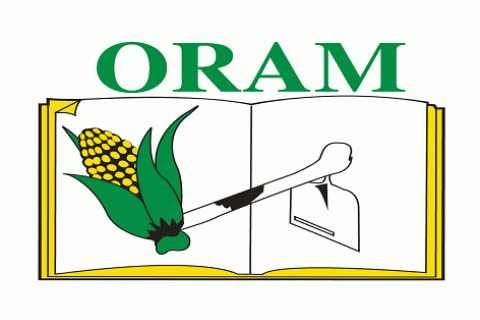The Columbia Center on Sustainable Investment (CCSI), a joint center of Columbia Law School and Columbia Climate School at Columbia University, works to strengthen the sustainable development potential of international investment, and to ensure that international investment is mutually beneficial for investors and the citizens of recipient countries. We envision a world in which international investment contributes to, and does not undermine, sustainable development.
We develop and disseminate practical approaches to maximize the benefits of international investment for sustainable development—and to minimize its harms—by conducting rigorous research, providing policy analysis and advisory services, offering educational programs, developing tools and resources, and fostering multi-stakeholder dialogue and knowledge-sharing.
We integrate legal, economic, and policy expertise, and approach sustainable investment holistically, bridging diverse disciplines, including investment law, natural resource management, human rights law, economics, political economy, finance, and climate change policy. One of our great strengths lies in having knowledgeable perspective across the range of stakeholders, tools, policies, and practices that shape investment flows and outcomes. This allows us to work across communities of practice and with different stakeholder groups, and to provide insight and solutions at the intersections of these often-siloed areas relevant to sustainable investment.
Resources
Displaying 41 - 41 of 41Piloting the ‘Community Land Value Chain’ in Zambezia, Mozambique
General
ORAM with Terra Firma, provided assistance to 20 communities and 14,000 households living in and around concession areas granted by government to Portucel Mozambique, a subsidiary of the Portugal based Navigator company, for Eucalyptus plantations, intended to supply European pulp and paper markets. The project adopted a technical approach and set of digital tools known locally as CaVaTeCo - the Community Land Vale Chain approach, developed by Terra Firma and ORAM. This was used to identify local community boundaries, and the household and family owned land parcels within them, create legally-recognised institutions to represent each community, establish local land registries supported by a centralised digital platform, and issue certificates to all land holders. The project also undertook land use planning with each community, and promoted women’s participation and a high proportion of land parcels are registered in the name of women. ORAM facilitated recognition by district government of the community and household land rights documented and the community land associations established The principal outcomes of the project was to secure the land rights of communities in the focal areas of Portucel’s concession in Zambezi province, enabling Portucel to operate on the basis of the free, prior and informed consent of the legitimate land rights holders, and creating a more level playing field for negotiation between the communities and Portucel on the terms and arrangements for the company to use community land. This can also potentially assist in enabling other companies and government to adopt best practice for responsible in agriculture abdn plantation forestry. As the project got underway, Portucel agreed to suspend land acquisition and to proceed to negotiate land access to land on the basis of documented community land rights. The company changed its plans from a focus on large scale plantations and adopted an agro-forestry mosaic approach that would include small scale plantation blocks and outgrower arrangements, with support to farmers to produce of income generating crops including alternative tree species. The project also undertook training of community land association members in legal aspects and business negotiation with outside investors seeking to access land. Formal negotiations between the local communities on Portucel based on local community members’ documented land rights and their assessment of what land could be made available to the company did not take place during the life ot the Legend project , as Portucel was not ready to propose new land use agreements and plans. Grantee’s products and project documentation CaVaTeCo Briefing Note: Piloting the “Community Land Value Chain” Approach in Mozambique CaVaTeCo Briefing Note: Key Messages on the “Community Land Value Chain” Approach in Mozambique CaVaTeCo Technical Guide 2 - Steps in Delimitation of Family Lands CaVaTeCo Technical Guide 1 - Stages of the CaVaTeCo Approach CaVaTeCo Technical Guide 4 - Active Community Participation Improves Efficiency of Family Land Delimitation CaVaTeCo Technical Guide 3 - Common Problems in Land Delimitation Guião Técnico de CaVaTeCo 2 : Passos de Delimitação de Parcelas Familiares Guião Técnico de CaVaTeCo 3 - Problemas Frequentes na Delimitação de Terra Guião Técnico de CaVaTeCo 4 - Participação Activa Melhora a Efficiência da Terra Familiar Governação Participativa de Terras - Preparação para Negociação com Investidores CSO Briefing Note for Enviromental Impacts of Eucalyptus Plantations Report on the training for Community Land Associations to prepare for negotiation with investors Portucel Mozambique slide presentation (September 2019) Options for Securing Tenure and Documenting Land Rightsin Mozambique: A Land Policy & Practice Brief Options for Securing Tenure and Documenting Land Rightsin Mozambique: A Land Policy & Practice Paper Opções para Garantir a Posse e a Documentação dos Direitos à Terra em Moçambique: Um Infõrmativõ Breve Documento sobre as Políticas e Práticas de Acesso à Terra Opções para Garantir a Posse e a Documentação dos Direitos à Terra em Moçambique: Um Documento sobre as Políticas e Práticas de Acesso à Terra




